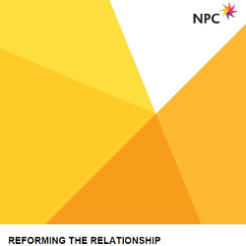New public contract regulations which come into force today will help charities win government contracts but do not got far enough, according to a report by think tank New Philanthropy Capital.
In a paper called Reforming the relationship, NPC says changes in public sector purchasing will have a “major influence on how charities operate, and will "affect their ability to access public funding and the scale of resources available” for their charitable aims.
The paper highlights how important government funding is to the voluntary sector: with £11bn a year, or almost 40 per cent of all money received by charities, coming from contracts.
Under the new procurement regime, the government has removed the distinction between Part A service contracts, which were subject to full EU procurement processes, and Part B contracts, which were not.
A ‘new light touch regime’ will cover administrative, cultural, health and educations services where the contract value is over £625,000, meaning many charities will have less arduous rules to follow when bidding for work.
Small and medium-sized enterprises (a category that covers most charities) will also be encouraged to become more involved in bidding for public contracts. Purchasers will be encouraged to divide contracts into smaller ‘lots’ to “level the playing field”, allowing charities to bid for parts of a large contract, instead of the whole thing.
The report concludes that while some of the regulation changes allow charities “a greater opportunity to engage with the market” the fact that reserved contracts “do not explicitly apply to charities is a huge missed opportunity.”
“We have argued for a long time that charities would benefit if public authorities take a bolder approach to commissioning contracts,” said Dan Corry, chief executive of NPC.
"The regulations are far from perfect: strangely they seem to give greater preference to mutual spin-outs than to charities. But all steps to encourage new ideas in commissioning are extremely welcome.”










